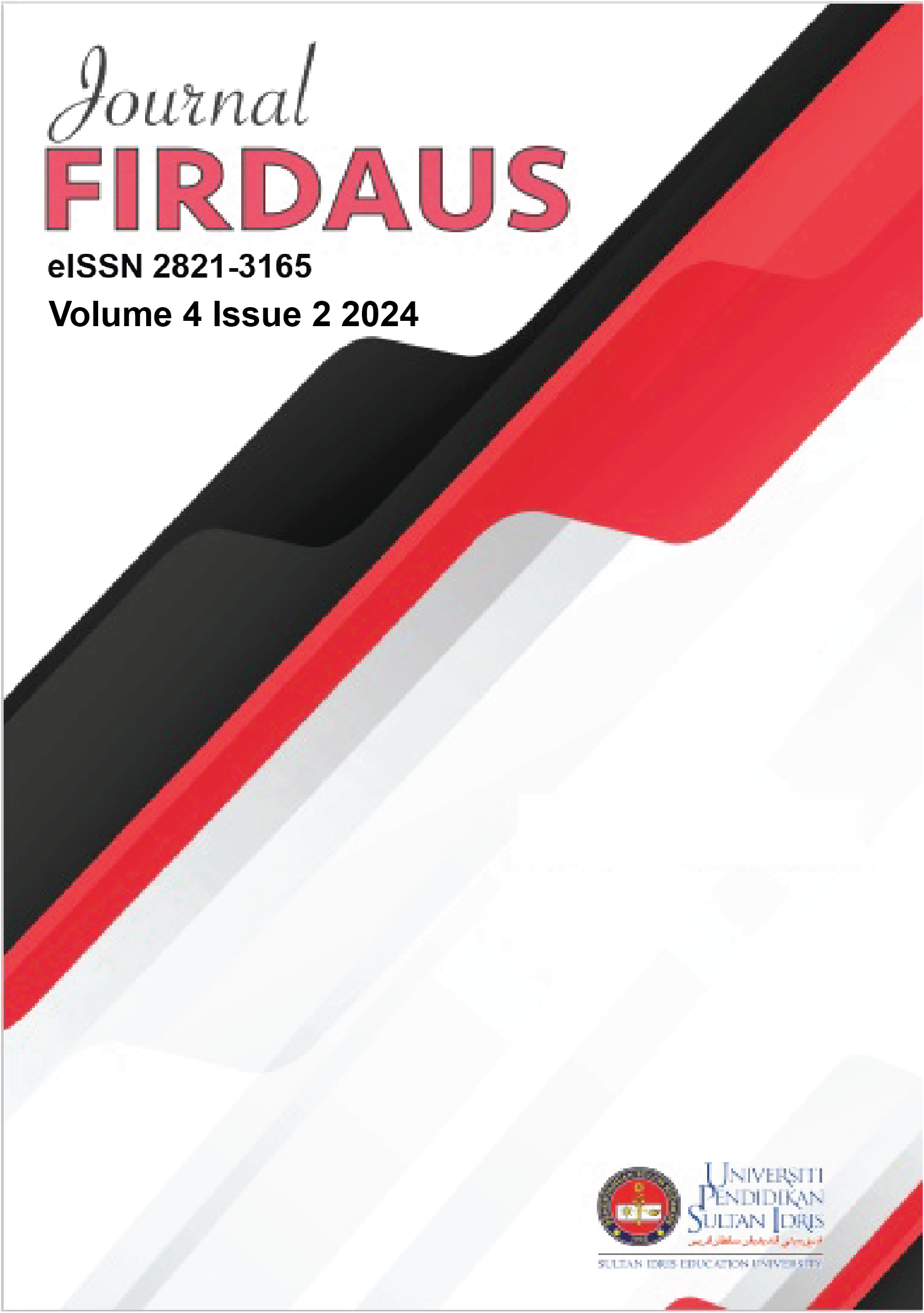The Effect of Manhaji Method in Arabic Language Learning (Reading Aspect) Grade 2 Diniyah Pesantren Al Mizan Muhammadiyah Lamongan
DOI:
https://doi.org/10.37134/firdaus.vol4.2.6.2024Keywords:
Manhaji Method, Nahwu Sharaf Guidance by Reciting, Arabic Language Learning, Islamic Boarding SchoolAbstract
This study aims to determine the influence of the manhaji method: nahwu sharaf guidance by reciting in learning Arabic (reading aspect) of the Al Mizan Muhammadiyah Lamongan Islamic Boarding School. The subject of this study is the 2nd grade of Diniyah Islamic Boarding School Al Mizan Muhammadiyah Lamongan. The problem experienced is the factor that students cannot read Arabic in learning Arabic using the manhaji method. This study uses quantitative research based on the type of data in the form of numbers, namely in the form of numbers through the suspension process Based on the results of this study, the manhaji method has no effect on Arabic language learning (reading aspect) with a t- value of calculation (0.812) < t-table (2.035), then H0 is accepted and Ha is rejected meaning "the manhaji method has no significant effect on the Arabic language learning method (reading aspect)", with a very low level of relationship seen from the correlation test, namely an R value of 0.140. This shows that the level of relationship between the independent variable and the bound variable is very low, so it can be seen that the existence of the manhaji method does not improve the Arabic language language language (reading aspect) of grade 2 students of the Al Mizan Muhammadiyah Lamongan Islamic Boarding School.
Downloads
References
Cahyadi, Rahmat Arofah Hari. “Pengembangan Pondok Pesantren.” Halaqa: Islamic Education Journal 1, no. 1 (2017): 43–52. https://doi.org/10.21070/halaqa.v1i1.820.
Febrianingsih, Dian. “Keterampilan Membaca Dalam Pembelajaran Bahasa Arab.” SALIMIYA: Jurnal Studi Ilmu Keagamaan Islam 2, no. 2 (2021): 2721–7078.
Furoidah, Asni. “Media Pembelajaran Dan Peran Pentingnya Dalam Pengajaran Dan Pembelajaran Bahasa Arab.” Al-Fusha : Arabic Language Education Journal 2, no. 2 (2020): 63–77. https://doi.org/10.36835/alfusha.v2i2.358.
Joko Nursiyo, Lc. Manhaji; Bimbingan Nahwu Shorof Dengan Mengaji. Diedit oleh Lc Joko Nursiyo. Darun Nuhat (Pesantren Ilmu Nahwu dan Shorof) Lamongan, 2018.
Nandang Sarip Hidayat. “Problematika PEembelajaran Bahasa ArabOleh: Nandang Sarip Hidayat.” An-Nida’ 37, no. 1 (2012): 82–88.
Prof. Dr. Sugiyono. Metode Penelitian Kuantitatif, Kualitatif, dan R&D. Bandung: Alfabeta, cv, 2017.
Ritonga, Mahyudin, Alwis Nazir, dan Sri Wahyuni. “Pembelajaran Bahasa ArabBerbasis
Teknologi Informasi Dan Komunikasi Di Kota Padang.” Arabiyat : Jurnal Pendidikan Bahasa Arabdan Kebahasaaraban 3, no. 1 (2016): 1–12. https://doi.org/10.15408/a.v3i1.2879.
Saleh, Gunawan -, dan Ribka Pitriani. “Pengaruh Media Sosial Instagram dan WhatsApp Terhadap Pembentukan Budaya ‘Alone Together.’” Jurnal Komunikasi 10, no. 2 (2018): 103. https://doi.org/10.24912/jk.v10i2.2673.
Slamet, Rokhmad, dan Sri Wahyuningsih. “Validitas Dan Reliabilitas Terhadap Instrumen Kepuasan Ker.” Aliansi : Jurnal Manajemen dan Bisnis 17, no. 2 (2022): 51–58. https://doi.org/10.46975/aliansi.v17i2.428.
Takdir. “Problematika Pembelajaran Bahasa Arab” Naskhi 2, no. 1 (2020): 40–58.
Downloads
Published
Issue
Section
License
Copyright (c) 2024 Mochamad Ramadhan, Asrori, Shokhibul Arifin

This work is licensed under a Creative Commons Attribution-NonCommercial-ShareAlike 4.0 International License.





